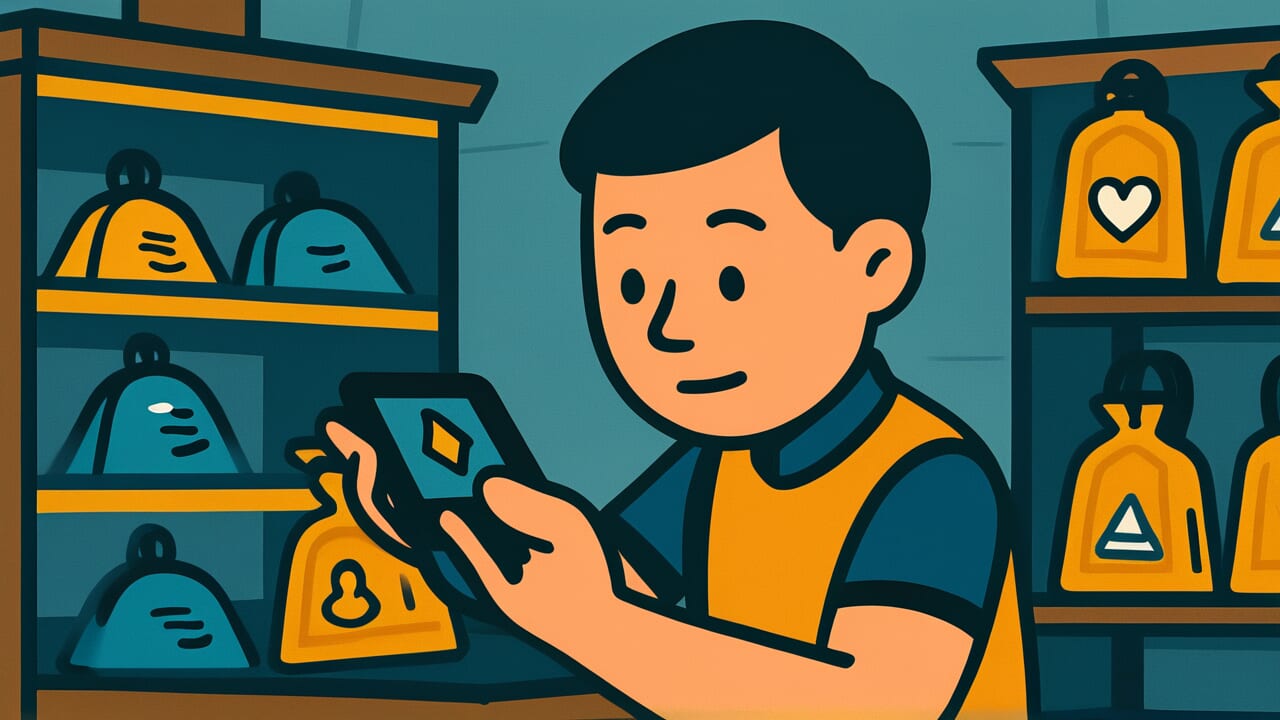How to Read “Even while crying, taking the better one when dividing keepsakes”
Nakunaku mo, yoi hō wo toru katamiwake
Meaning of “Even while crying, taking the better one when dividing keepsakes”
This proverb reveals a fundamental truth about human nature. Even in the midst of sadness, our desire for gain never disappears.
Dividing keepsakes should be a solemn moment wrapped in grief. Yet people still try to choose the better items, the more valuable ones. They shed tears while calculating profit and loss somewhere in their hearts.
This expression calmly observes this contradictory human behavior.
People use this proverb when pointing out how someone considers their own interests even during sad or difficult situations. It doesn’t always carry a critical tone.
The saying also contains a sense of resignation that this is simply natural human behavior. No matter how sad or painful things get, we need to make practical judgments to keep living.
You can recognize this human quality in the expression itself.
Even today, we sometimes hear about families fighting over inheritance. This proverb saw through this unchanging human trait hundreds of years ago.
Origin and Etymology
The exact first appearance of this proverb in literature is unclear. However, the structure suggests it was already in use during the Edo period.
The key lies in the word “katamiwake” (dividing keepsakes).
Katamiwake is the custom of dividing a deceased person’s belongings among relatives and close connections. It’s an important ritual for remembering the departed.
Yet these items also carry practical and economic value. The scene should be filled with sadness, but people naturally notice the better items, the more valuable ones.
This expression captures that human instinct perfectly.
“Nakunaku mo” means “even while crying with sadness.” Even in the midst of grief, human desire for gain doesn’t vanish.
Rather, such moments reveal human nature most clearly. This observation forms the background of the proverb.
In Edo period commoner life, the value of objects mattered even more than today. Each item directly affected daily living.
Because of this era, human psychology during keepsake division was sharply observed. This led to the proverb becoming established.
It brilliantly captures the complexity of humans, where contradictory emotions of sadness and desire coexist.
Usage Examples
- The parent’s funeral just ended, yet the siblings are fighting over belongings. This is truly “Even while crying, taking the better one when dividing keepsakes.”
- They went to volunteer at the disaster area, but now they’re arguing over which relief supplies are better. That’s “Even while crying, taking the better one when dividing keepsakes.”
Universal Wisdom
This proverb teaches us about the fundamental duality of human existence. We are emotional beings and survival-seeking beings at the same time.
Even when grieving, we get hungry. Even while crying, tomorrow’s life continues. We cannot ignore this reality.
Our ancestors didn’t blame humans for this contradiction. They simply observed it quietly and left it as a proverb.
This shows deep human understanding. You don’t need to blame yourself for thinking about gain and loss during sadness. That’s a natural human state.
Rather, recognizing these movements in your own heart is what matters. The proverb may be telling us this.
Humans cannot become completely altruistic. No matter how noble your spirit, the instinct for self-preservation never disappears.
Even in situations demanding saint-like behavior, we calculate our own interests deep down. That’s what being human means.
This proverb has been passed down for so long because everyone feels this contradiction somewhere in their heart.
When you express sadness on the surface while calculating internally, you feel guilty. But this isn’t shameful. It’s proof of being human.
Our ancestors brilliantly put this universal truth into words through the concrete scene of dividing keepsakes.
When AI Hears This
When you quantify the keepsake division scene, surprising human psychology emerges. Imagine a situation where you value the belongings at 100, and choose a distribution of 60 for yourself and 40 for the other person.
In game theory’s ultimatum game, experiments repeatedly confirm something interesting. When proposers offer unfair distributions, receivers reject them even though they’ll get nothing themselves.
This means humans have a nature that won’t tolerate unfairness, even at personal cost.
But keepsake division has a crucial difference. The receiver cannot refuse. The person with first choice can secure the better item physically, even if the other person gets angry or the relationship breaks.
The expression “nakunaku” (crying) in this proverb strikes at the heart of this situation. The chooser knows they’ll receive emotional punishment, yet still selects the relative benefit.
They weigh emotional cost against material gain and choose the latter.
What’s interesting is that humans’ usual desire for fairness malfunctions here. In situations without veto power, the evolutionarily acquired mechanism of reciprocity doesn’t activate.
That’s why the psychological pain of “nakunaku” occurs. This is calculable stress born from the collision between rational judgment and social instinct.
Lessons for Today
This proverb teaches modern people the importance of being honest about their own mental movements. You don’t need to blame yourself for making practical judgments in sad situations.
That’s a natural human response. What matters is recognizing and accepting these mental movements.
Modern society sometimes feels like it demands we always have “correct emotions.” On social media, sad events are expected to receive only expressions of sadness.
But actual human hearts are more complex. Grieving while thinking about the next step isn’t weakness. It’s the power to live.
This proverb also teaches the meaninglessness of pursuing a perfect human image. Emotion and reason, altruism and self-interest, ideals and reality.
These aren’t opposing forces. Both are parts of us. Accepting both actually makes your heart lighter.
When you make practical judgments in difficult situations, you don’t need to feel ashamed. Looking forward while grieving is human strength and wisdom for living.
This proverb left by our ancestors has understood and accepted your behavior for hundreds of years.



Comments